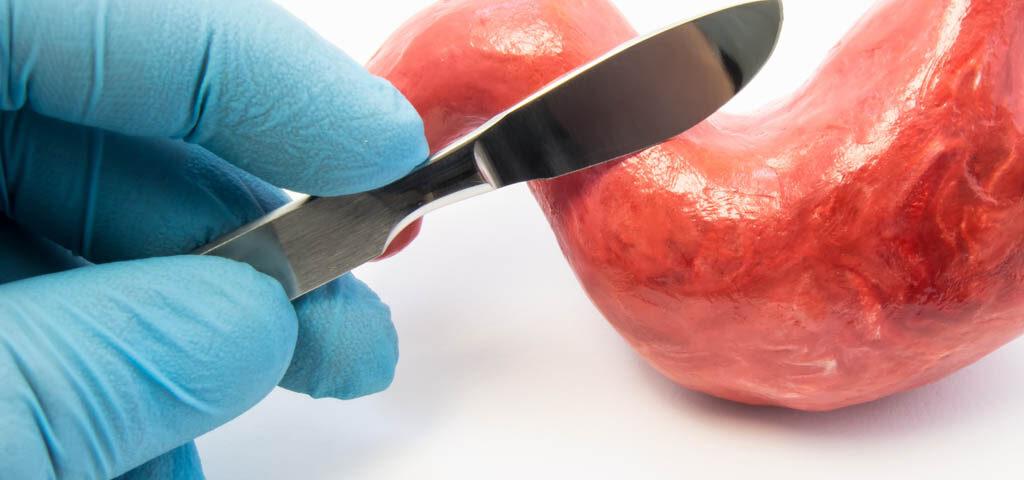TL;DR:
- Bariatric surgery treats obesity by reducing stomach size, limiting food intake and nutrient absorption. Types: Gastric bypass, sleeve gastrectomy, and gastric banding.
- Pre-surgery diet: Low-calorie, high-protein, avoids fatty/sugary foods to reduce liver size and complication risks.
- Post-surgery diet:
- Liquid diet (1-2 weeks): Clear broths, unsweetened drinks, protein shakes.
- Mushy diet (2 weeks): Puréed foods like yogurt, mashed fruits, cream soups.
- Soft diet (~1 month): Soft vegetables, eggs, lean meat.
- Permanent phase (6-8 weeks): Protein-rich foods, avoid hard, fatty, and sugary items.
- Supplements: Vitamin B12, D, calcium, iron, and zinc are critical post-surgery to address absorption issues.
- Tests: Regular blood tests, endoscopy, and imaging scans are required for monitoring.
- Coffee reintroduced gradually; alcohol discouraged.
Bariatric surgery is an effective method in the fight against obesity among people in whom standard weight-loss techniques have failed. While the surgery itself is an important step in the weight loss process, preoperative preparation is equally important, as is adherence to dietary recommendations after the procedure. In the following article, we have included information to help patients learn what bariatric surgery is all about, as well as what the diet should look like before and after the procedure to make weight loss not only sustainable, but above all healthy.
What does bariatric surgery consist of?
Bariatrics is a surgical procedure used to treat obesity by reducing the size of the stomach, which limits the amount of food consumed. There are several types of this procedure, including:
- gastric bypass which creates a small gastric pouch that is connected directly to the small intestine, bypassing most of the stomach and some of the small intestine;
- sleeve gastrectomy which involves removing part of this organ, creating a long, thin "sleeve" that limits its capacity;
- gastric banding – in this procedure, an adjustable ring is placed in the upper part of the stomach to form a small pouch that limits the amount of food consumed.
Gastric reduction does not only reduce appetite, but also reduces nutrient absorption, which is why recommendations after bariatric surgery, including diet, supplementation or physical activity, are so important.
Diet before bariatric surgery.
Diet before surgery is extremely important, as it helps prepare the body for the entire treatment and reduce the risk of complications. A sample diet before bariatric surgery should consist of:
- low-calorie meals – calorie restriction helps reduce the size of the liver, making it easier for the surgeon to access the stomach.
- high-protein foods – protein aids muscle recovery and accelerates tissue healing after surgery.
It is also important to avoid fatty and high-sugar foods, which can increase the risk of complications during surgery. A detailed list of preoperative recommendations, including dietary ones, is usually given to the patient by the specialist performing the procedure.
What kind of diet after bariatric surgery?
Bariatric surgery – diet is a key element in the success of weight loss. It is important for patients to gradually get used to a new way of eating to avoid complications and ensure that they get the right amount of nutrients. The diet after surgery is divided into several stages, each with its own specific recommendations.
What to eat after bariatric surgery – description of specific stages.
Liquid diet
Immediately after gastric reduction surgery, patients must be on a liquid diet, which lasts from seven days to two weeks. During this phase, clear broths, water, unsweetened beverages, as well as protein shakes are allowed. The main goal of this phase is to sufficiently hydrate the body and avoid gastric strain.
The mushy diet
Bariatric surgery – the diet after the liquid phase is a pap diet, which lasts for about two weeks. During this time, patients can consume products with a purée-like consistency, including yogurts, mashed fruits, cream soups and well-mixed protein shakes.
Soft diet
The pap stage is followed by the soft diet, which can last about a month. During this phase, patients introduce soft foods such as cooked vegetables, soft fruits, eggs, and well-cooked lean meat into their diet.
Permanent diet
The final phase is the introduction of solid foods, which usually takes place around week 6-8 after bariatric surgery. Although this phase is referred to as permanent, patients should still avoid hard and dry foods, as well as fatty foods. It is best to eat small portions of protein-rich food, vegetables, fruits and whole-grain products.
Diet after bariatric surgery – recipes for each stage
Liquid diet stage
- Clear chicken broth – cook lean chicken pieces in water with vegetables and spices. Strain the broth and drink in small sips.
- Protein shake – blend protein nutrition with water or plant milk to make a liquid shake.
Pulp diet stage
- Cream of broccoli soup – cook broccoli and potatoes, blend to a smooth paste with the addition of broth.
- Natural yogurt with fruit mousse – combine natural yogurt with mousse from your favorite fruit.
Soft diet stage
- Omelet with vegetables – beat eggs and add finely chopped vegetables. Fry in a small amount of olive oil until the omelet is cooked.
- Chicken in yogurt sauce – cook lean pieces of chicken and serve with a sauce of natural yogurt with herbs.
Solid diet stage
- Grilled chicken salad – slice grilled chicken and mix with a mixture of your favorite vegetables.
- Baked salmon with vegetables – bake salmon fillets with oil and spices, serve with roasted vegetables.
Diet after bariatric surgery – the menu is best developed with a specialist nutritionist, who will help choose an affordable form of nutrition for the patient, which at the same time will not burden the stomach.
What should not be eaten after bariatric surgery?
First of all, eliminate fatty and fried foods, which can be difficult to digest and eventually lead to stomach problems. Products rich in simple sugars should also be avoided, including sweets, cakes, as well as sodas, which can cause a rapid rise in blood sugar levels. What else:
- Hard and raw vegetables, nuts or seeds are difficult to chew and should be limited or thoroughly processed before serving.
- Foods rich in fiber, such as whole-grain breads and cereals, can cause discomfort and should be introduced gradually.
What about alcohol? Its consumption can cause dehydration and put additional stress on the liver.
Is it okay to drink coffee after bariatric surgery?
Drinking coffee after bariatric surgery is possible, but it should be done in moderation and with caution. In the first weeks after surgery, coffee should be completely eliminated to give the stomach time to heal. After this period, coffee can be gradually introduced into the diet, starting with small amounts. It is important to avoid adding sugar and cream, which increase the caloric content of the drink.
What tests after bariatric surgery?
After gastric reduction surgery, patients must regularly monitor their health. Follow-up examinations such as:
- morphology – regularly checking the levels of electrolytes, vitamins and minerals allows you to control the condition of the body and supplement any deficiencies;
- endoscopy – this test is used to monitor the condition of the stomach and intestines;
- imaging examinations – ultrasound or CT scans are also performed, if necessary. These examinations make it possible to see all changes in the abdomen.
Supplements vs. bariatrics – why is supplementation important?
While checkups after bariatric surgery are extremely important, it is also worth focusing on proper supplementation. Why? After surgery, patients often have difficulty absorbing all the necessary nutrients, which is why dietary supplements after bariatric surgery are so important. It's best to take vitamins, minerals, as well as protein supplements, but it's best to discuss dosage and type of supplements with your treating physician or nutritionist to avoid potential complications.
Which vitamins after bariatric surgery?
B vitamins (especially vitamin B12) are most commonly given, as well as vitamin D, iron, calcium, folic acid and zinc. Why is supplementation so important? First of all, it helps maintain health and prevents health complications associated with nutritional deficiencies. Another important consideration is that a weakened body may take longer to heal and unwanted side effects may occur. The diet for people after bariatric surgery requires strict adherence to the recommendations of specialists and regular check-ups. Adherence to dietary steps, proper supplementation and regular health monitoring are extremely important for success in weight loss and improved quality of life after surgery. A sample diet after bariatric surgery and customized recipes for each stage can help patients on this difficult but vital path to health.
Conclusion
Bariatric surgery is a powerful tool, but success depends on proper preparation and aftercare. From pre-surgery diets to post-surgery food phases, every step matters. Following a clear plan, including supplementing nutrients and regular check-ups, ensures long-term health. This journey isn’t just about weight loss; it’s about building a sustainable, healthier lifestyle. Stick to your specialist’s advice, adapt to the new way of eating, and stay consistent. It’s not easy, but the rewards are life-changing. You deserve the results that come from dedication and planning.






